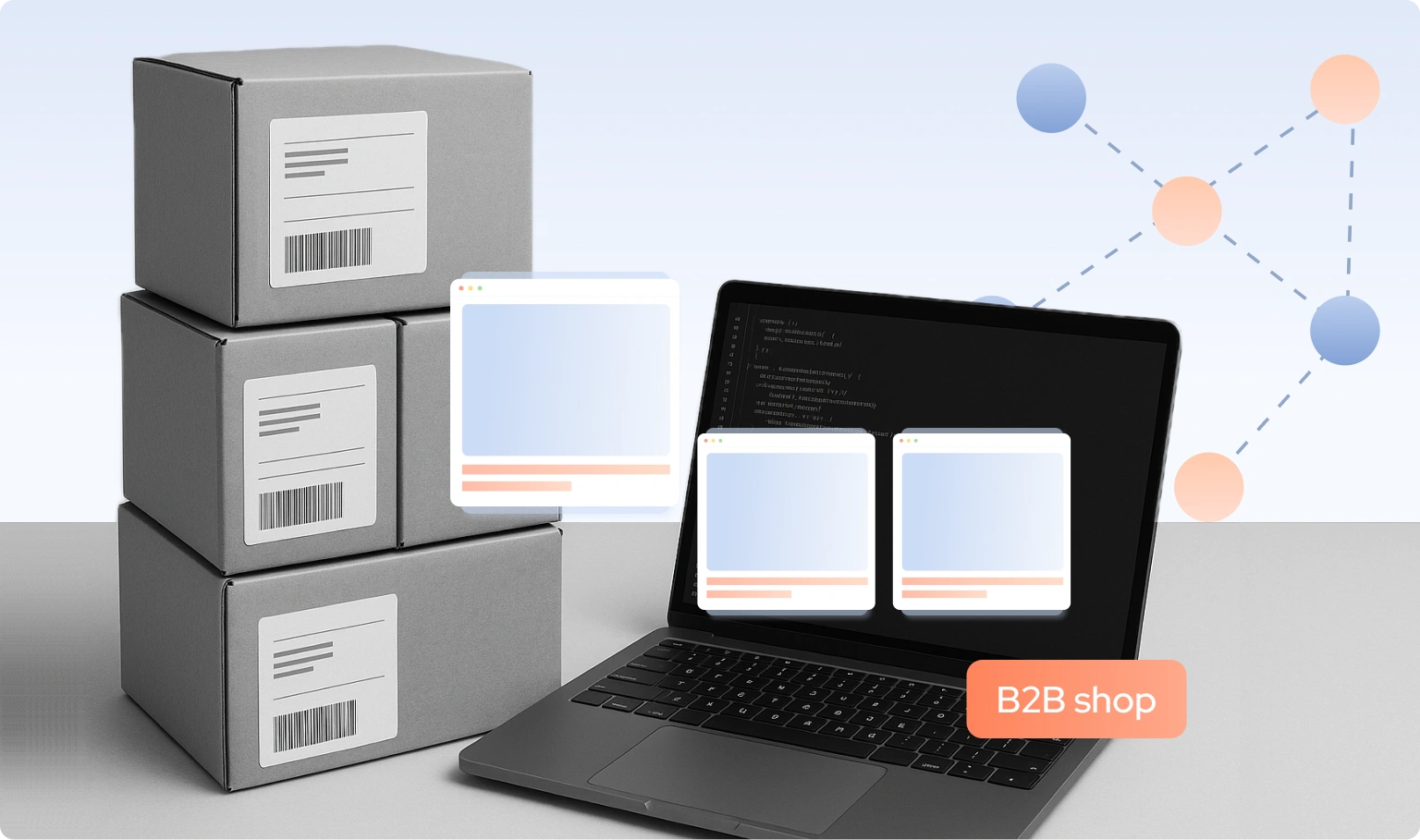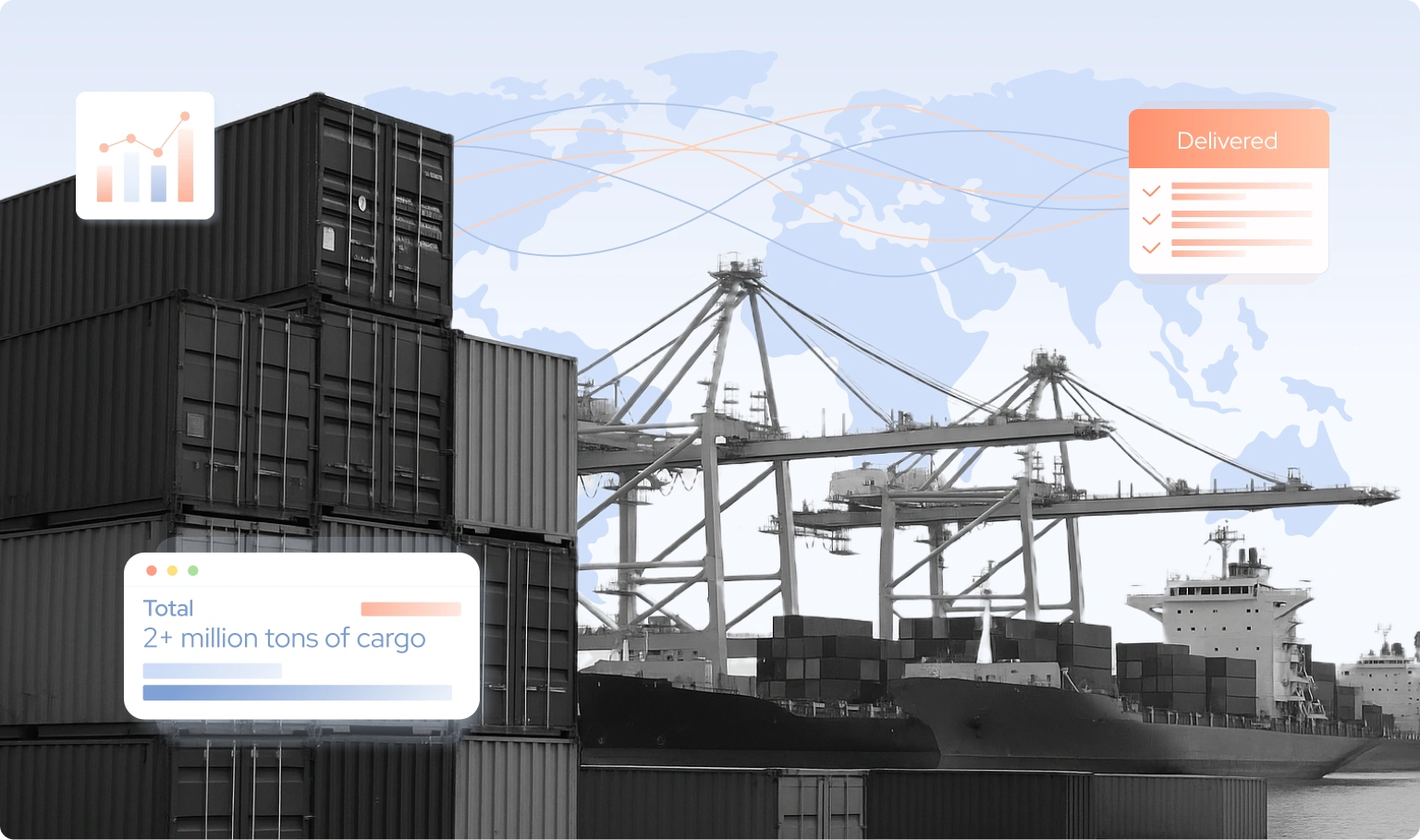.NET framework to .NET core migration services
Is your legacy .NET Framework application ready for a modern upgrade? TYMIQ offers specialized migration services to help you seamlessly transition to .NET Core, unlocking enhanced performance, cross-platform support, and modern development capabilities.
Talk to usWhy should migrate from .NET Framework to .NET Core?
With .NET Framework 4.8 being the final release and no further updates planned, Microsoft has shifted its full focus to .NET Core (now .NET 6+). Migrating to .NET Core allows you to future-proof your applications while taking advantage of the latest innovations in software development, cross-platform compatibility, and improved performance.
Achieve quicker application performance with reduced resource overhead.
Seamlessly operate across multiple environments, including Windows, macOS, and Linux.
Access the latest tools, libraries, and frameworks to enhance development productivity.
Stay up-to-date with continuous enhancements and long-term support from Microsoft.
When is .NET Core migration the right move for your business?
Migrating from .NET Framework to .NET Core isn't just about upgrading for the sake of it. Certain business challenges and goals make this transition not only logical but essential. Below are specific scenarios where moving to .NET Core can drive real value:
If your business is relying on an aging, monolithic application that’s becoming increasingly difficult to maintain or update, migrating to .NET Core allows you to modernize your infrastructure with a more modular, maintainable codebase.
For businesses aiming to expand their digital offerings to global markets or platforms, including mobile and web, .NET Core offers the flexibility to support new customer segments and devices without overhauling your entire system.
Companies struggling with high server costs, especially those locked into Windows-only environments, can significantly cut down infrastructure expenses by moving to a cross-platform solution that works on Linux or in containers.
If digital transformation is a top priority for your company, .NET Core enables rapid adoption of cloud-native technologies, microservices, and DevOps practices, positioning your IT systems for greater agility and innovation.
For organizations in highly regulated industries (e.g., healthcare, finance), staying compliant with the latest security standards is vital. Migrating to .NET Core offers access to modern security practices and ongoing updates, helping ensure compliance with evolving regulatory requirements.
When your application is reaching its scaling limits due to legacy architecture or technical debt, .NET Core’s ability to handle higher loads and more complex scaling scenarios—whether in the cloud or on-premises—helps future-proof your infrastructure.
As industries evolve and integrate new technologies like AI, machine learning, and IoT, .NET Core positions your application to better integrate with these advanced capabilities, enabling innovation without being held back by legacy systems.
The cost estimate for .NET Framework to .NET Core migration
During the initial conversation with each prospective client, our migration experts ascertain all the details of the upcoming project and provide a ROM estimate of the effort and costs involved. Below are the factors we consider when preparing a ROM for migrating from .NET Framework to .NET Core, which can impact the overall cost:
Monolithic apps take longer to migrate compared to microservices-based architectures.
Applications with complex business logic or legacy integrations will require more effort.
Larger codebases involve more modules, requiring more time to review, refactor, and test.
Some third-party libraries or NuGet packages might not be compatible with .NET Core, requiring replacements or custom solutions.
Any migration of data access layers (e.g., Entity Framework migration).
Applications relying on specific middleware or APIs that might require reworking for Core compatibility.
Features like Windows Communication Foundation (WCF), Windows Forms, or other platform-dependent functionalities need significant changes, as they may not be supported in .NET Core.
Migration efforts may involve performance tuning to take full advantage of .NET Core’s speed and efficiency improvements.
Read on for the phase details.
TYMIQ reengineering methodology visualization
Below is a timeline diagram showing the key deliverables of TYMIQ’s .NET reengineering lifecycle. Under the diagram, you'll find a complete step-by-step guide that explains each phase in detail, from analysis to deployment.
Deliverables of Phase 0 “Detailed assessment and planning”:
Deliverables of Phase 1 “Proof of Concept and prototyping”:
Deliverables of Phase 2 “Incremental migration and development”:
Deliverables of Phase 3 “Testing, optimization and stabilization”:
Deliverables of Phase 4 “Deployment and ongoing support”:
Deliverables of Phase 0 “Assessment and planning”:
Deliverables of Phase 1 “Proof of Concept and prototyping”:
Deliverables of Phase 2 “Incremental migration and development”:
Deliverables of Phase 3 “Testing, optimization, and stabilization”:
Deliverables of Phase 4 “Deployment and ongoing support”:
Our full migration service scope
We assess your .NET Framework applications by reviewing the codebase and documentation to understand their scope and requirements.
We break the application into logical modules, define the target architecture, and finalize technology choices for the new solution.
We assemble a team of existing domain experts and new developers skilled in the chosen technologies.
a) At the very start, we select a small, low-risk module to test the migration to .NET Core and the chosen frontend framework.
b) Building a prototype using the new architecture and tech stack.
a) We validate the PoC for code quality, security, and performance.
b) Presenting the PoC to stakeholders for feedback and alignment with business goals.
c) Refining the migration strategy or design based on the feedback.
We break it into manageable modules (e.g., authentication, data access, business processes, notifications, business rules, and reporting) and prioritize migration based on technical dependencies, complexity, and risk.
We engage developers with domain expertise and knowledge of the codebase to strengthen the team.
We migrate modules one by one with defined requirements and goals.
a) We set up pipelines for automated builds, testing, and deployments with version control integration.
b) Implementing the best DevOps practices, including infrastructure as code, automated testing, and continuous monitoring.
c) Developing automated test suites for unit, integration, and regression testing.
a) We validate functional requirements with unit, integration, and user acceptance testing (UAT).
b) Conducting performance and load testing to ensure benchmarks are met and scalability.
c) Performing security assessments, including penetration testing and vulnerability scanning.
a) We improve performance by reviewing and optimizing the codebase and database queries.
b) Implementing caching strategies (e.g., Redis caching) and use monitoring tools (e.g., Application Insights) to identify bottlenecks and enhance application efficiency.
a) We fix bugs and optimize system stability.
b) Executing the data migration plan, ensuring data integrity through thorough validation.
a) We define the deployment strategy (e.g., blue-green deployment) to minimize downtime and risk.
b) Setting up the target infrastructure (e.g., cloud, on-premises) and configure it (e.g., load balancers, servers).
c) Implementing continuous monitoring and alerting with tools like Application Insights or Grafana.
d) Establishing a patching and update process for applications and infrastructure.
a) We deploy the solution to a production-like environment for final validation.
b) Monitoring closely, gather feedback, and address any issues.
a) We gradually expand deployment to the entire user base.
b) Providing post-deployment support for issue resolution.
Ready to elevate your app with .NET Core? Book a consultation with TYMIQ to learn how we can make your transition smooth and efficient.
Request a consultationIndustry-specific .NET Core migrations: Tailored solutions for every sector
Every industry has unique needs, and TYMIQ ensures that your migration to .NET Core is fully aligned with your specific business environment. Here’s how our migration services benefit key industries:

- Security and compliance: With .NET Core, finance applications can meet strict regulatory standards like PCI DSS while benefiting from enhanced security features.
- Performance and scalability: Handle high transaction volumes efficiently and scale easily as your customer base grows.
- Real-time processing: Achieve faster data processing and analytics, crucial for trading platforms, risk assessment tools, and financial forecasting.

- HIPAA compliance: Ensure patient data security and privacy with built-in compliance support for regulatory frameworks like HIPAA.
- Integration with modern systems: Seamlessly integrate with modern healthcare systems, EHRs, and medical devices using .NET Core’s flexible architecture.
- Improved performance: Optimize healthcare applications for faster data retrieval, patient record processing, and medical report generation.

- Cross-platform shopping experience: Build high-performance, scalable, and cross-platform e-commerce solutions to cater to a growing number of mobile and web users.
- Scalable infrastructure: Leverage .NET Core’s scalability to handle peak shopping seasons with minimal downtime and fast response times.
- Advanced analytics: Integrate real-time data tracking and customer analytics for smarter inventory management and personalized shopping experiences.

- IoT Integration: Use .NET Core to power IoT systems that monitor supply chains, track assets, and optimize manufacturing processes.
- Cross-platform deployment: Manage logistics operations across multiple systems and devices with .NET Core’s flexibility.
- Real-time data: Enable real-time tracking and reporting for better decision-making in production and inventory management.

- Enhanced learning platforms: Build dynamic, scalable, and interactive learning management systems (LMS) using .NET Core.
- Cross-device support: Ensure seamless access to e-learning tools across mobile, desktop, and tablet devices for students and educators alike.
- Security and privacy: Protect sensitive student data with robust security features in compliance with data privacy laws like FERPA.
Our featured .NET migration projects
We have partnered with organizations across various industries to migrate their legacy applications to .NET Core. Leveraging our expertise, we ensure an uninterrupted transition that modernizes software infrastructure, driving innovation and supporting future growth. While many of our projects are under NDA, we’re pleased to showcase a selection of featured migration projects we've successfully delivered.
Dedicated teams for .NET Framework upgrade
At TYMIQ, we provide dedicated .NET developers on flexible engagement models, seamlessly integrating with your team for agile and cost-effective collaboration. Our projects start within 2-4 weeks, delivering high-quality, sustainable results at competitive prices.
Hire dedicated .NET developersEmpower your business with .NET Core
Drop us a message, and our .NET experts will handle the rest.


Why choose TYMIQ to convert .NET framework to .NET Core
Choosing TYMIQ for your migration ensures seamless integration with your business and effective handling of daily challenges. Here’s why TYMIQ stands out:
TYMIQ provides a highly flexible task force. We can quickly scale our team according to your project's evolving needs, ensuring agility and responsiveness throughout the development process.
Our skilled professionals focus on your project, ensuring alignment with your business goals. This guarantees consistent quality, quicker delivery times, and a thorough understanding of your specific needs.
We are committed to your company's success, bringing motivation and a proactive approach to every project. This dedication drives high performance, resulting in tangible outcomes.
TYMIQ prioritizes delivering lasting value to your business. By aligning closely with your strategic objectives and operational needs, we contribute to the sustainable growth of your business.
TYMIQ is a trusted partner for inclusive collaboration. We seamlessly integrate into your team, fostering transparency, trust, and effective communication to achieve shared objectives.
With TYMIQ, your project kicks off within 2-4 weeks. Our streamlined processes and efficient onboarding ensure that we can start working on your software development needs with minimal delay.
TYMIQ offers competitive pricing without compromising on quality. We provide clear cost estimates upfront, ensuring you know exactly what you're paying for without any hidden fees, allowing for better budget management.
Ready for modernization? Begin your .NET Core migration with TYMIQ!
Schedule a callFAQ

Yes, .NET Framework is considered outdated. Microsoft has officially ended support for versions like 4.5.2, 4.6, and 4.6.1 as of April 26, 2022, signaling the need to migrate to modern platforms like .NET Core (now .NET 6+). Continuing to use .NET Framework could expose your applications to security vulnerabilities and limit performance. Migrating to .NET Core not only ensures ongoing support but also provides better performance, enhanced security, and access to the latest features that help future-proof your applications.

To check your .NET Framework version:
1. Open Run (Windows + R), type regedit, and press Enter.
2. Navigate to
HKEY_LOCAL_MACHINE\SOFTWARE\Microsoft\NET Framework Setup\NDP\v4\Full.
3.Check the Release value and compare it with Microsoft's version chart to identify the installed version.
Alternatively, use Command Prompt with this command:
reg query "HKLM\SOFTWARE\Microsoft\Net Framework Setup\NDP\v4\Full" /v Release

Upgrading from .NET Framework to .NET Core is not only affordable in the long run but also a cost-saving move. While the upfront cost of migration can vary depending on the complexity of your project, it immediately eliminates dependency on Windows Server licensing and associated fees. Additionally, .NET Core is open-source, meaning there are no licensing costs, which significantly reduces maintenance expenses. Running .NET Core on fewer servers or virtual machines also helps cut down on infrastructure and hosting costs, making the upgrade a worthwhile investment over time.

While it is technically possible to migrate from .NET Framework to .NET Core with an in-house team, the process can be complex and time-consuming. Microsoft's migration guides provide helpful resources, but the transition often involves challenges such as updating dependencies, refactoring code, and ensuring compatibility across platforms. Engaging an experienced .NET Core migration consultant can provide additional expertise in planning, incremental development, and risk management, ensuring a smoother and more efficient migration process for your business.

%20-%20How%20to%20move%20from%20.NET%20Framework%20to%20.NET%20Core%20in%20a%20few%20steps_%20Migration%20guide.webp)





.svg)

